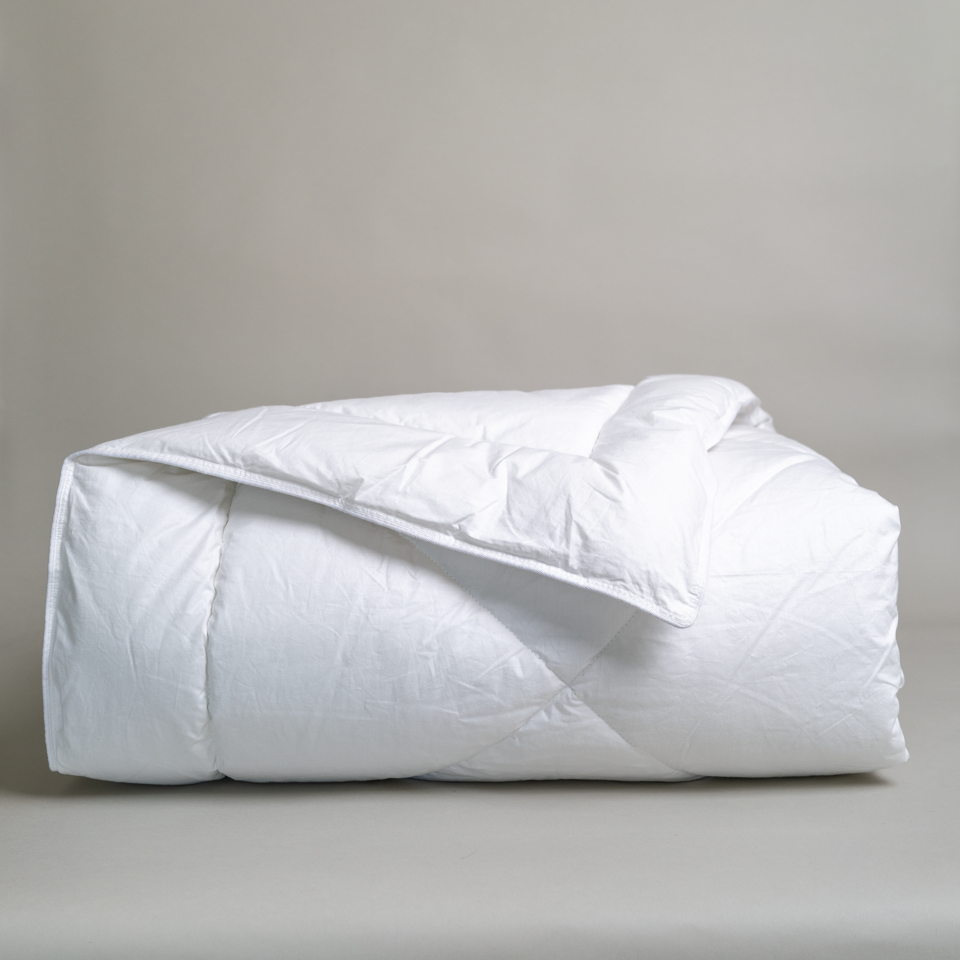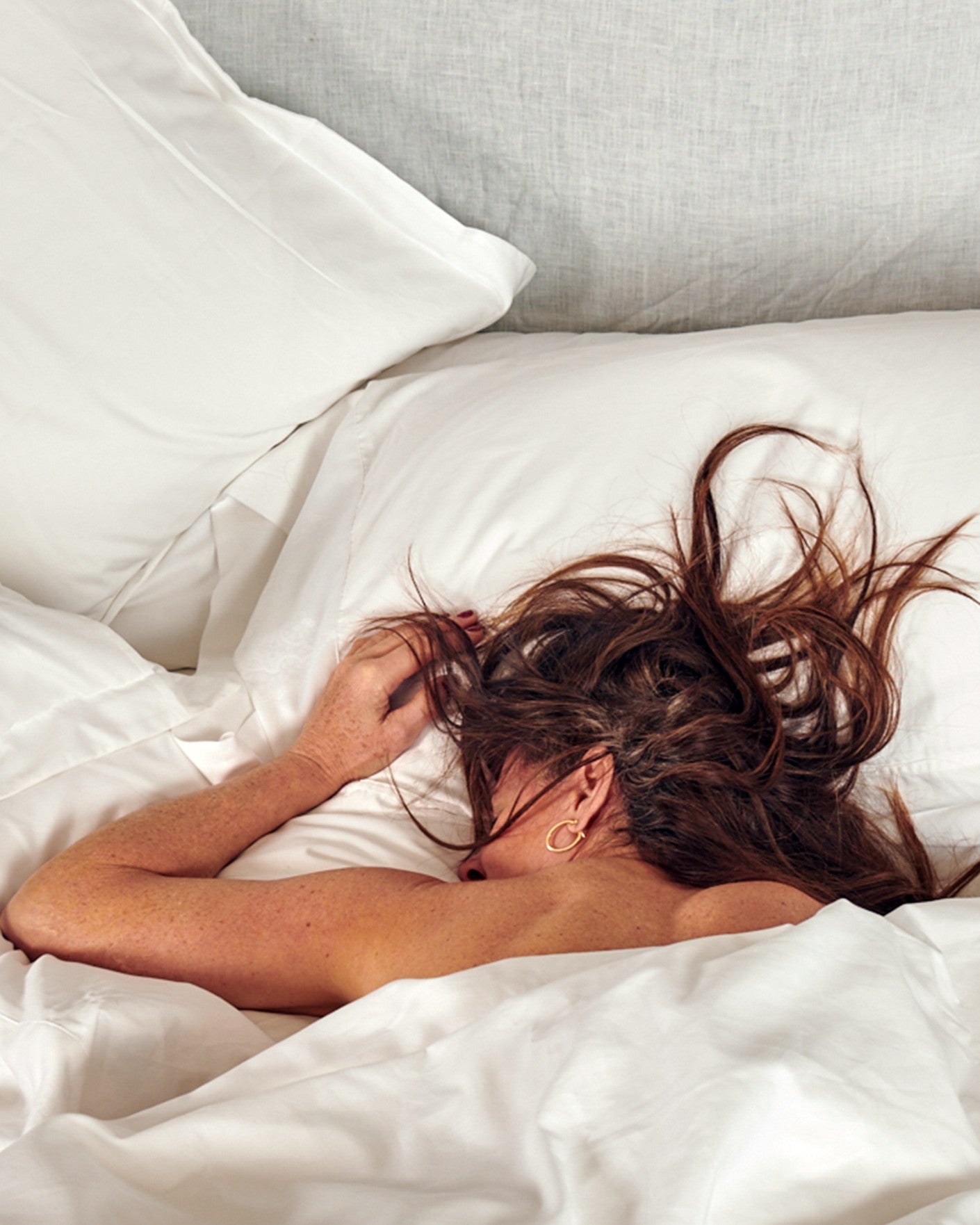Everyone has their sleep habits and their sleep preferences. You and your sleeping partner might be totally in synch when you’re awake but polar opposites when it comes to sleep. You’re early to bed, early to rise; they’re a night owl. They sleep hot; you sleep cold. One of you snores more noticeably than the other. Some of these issues are more easily resolved than others. In the worst case, you might consider alternate sleep arrangements, which is what is meant by the rather stark phrase “sleep divorce.”
What Is a Sleep Divorce?
It simply means moving to a separate bed, separate room, or crafting some other alternative sleep arrangement so both you and your partner can get sufficient sleep. In July 2023, the American Academy of Sleep Medicine announced the results of a survey of 2,005 adults in the U.S. designed to learn whether respondents had adjusted their sleep routines to accommodate their bed partners and in what ways they had done so. Some respondents reported using eye masks (18%) or earplugs (15%), going to sleep at an earlier or later time than desired (33%), or using a silent alarm (16%).
A third of respondents reported occasionally or consistently sleeping in separate rooms to accommodate a bed partner. The age group most likely to sleep in another room was found to be those between the ages of 35-44, and it was more likely to be male respondents who slept in another room. If nothing else, the results of the AASM’s survey illustrate that fact that you’re not alone if you prefer to sleep alone.
If sharing a bed is interfering with one or both of you getting sufficient, quality sleep, you might improve your relationship by sleeping in separate rooms, at least sometimes. “We know that poor sleep can worsen your mood, and those who are sleep deprived are more likely to argue with their partners. This may lead to resentment toward the person causing the sleep disruption which can negatively impact relationships,” said Dr. Seema Khosla, pulmonologist, and spokesperson for the AASM.
5 Sleep Habits that Might Lead You to Consider a Sleep Divorce
This doesn’t mean you’re incompatible, only that you might need to take some steps to ensure you both get the sleep you need.
1. You go to bed or wake at different times
If you must get up earlier than your partner, and you require an alarm to wake, consider a silent alarm. If your partner sleeps with an eye mask, a wake-up light is an option. If not, consider a vibrating watch such as Fitbit. As a bonus, these offer features that can track your health and fitness, as well as your sleep. Our guest travel blogger Scott sleeps with a Pavlok on his wrist to wake without waking his bed partner. It offers the options of waking to a ring, a vibration, or a shock (“safe electrical impulses”).
Additionally, plan the night before to have what you need for the next day ready outside the bedroom. That includes clothing, makeup, and anything else you’ll want from the bedroom to get to work, whether that’s at home or at the office. There is nothing louder than someone trying to be quiet as they “slip” into the bedroom for the item they forgot. At that point, all gloves come off.
2. You sleep at different temperatures
Just because you share a bed does not mean you need to share a comforter or blanket. Consider following the lead of Europeans by sleeping under two twin-size comforters instead of one king-size comforter. You can each select the weight that suits how hot you sleep: summer weight for the one who sleeps hot and winter weight for the one who sleeps cool. This can also solve the problem of sharing covers with someone who rolls over and takes the covers with them.
If you’re concerned about maintaining a beautiful bed when you’re not sleeping, you can do it with two twin-size comforters. Place them next to each other on the bed (flat or folded in thirds) and lay a decorative throw diagonally on the bed or horizontally across the foot of the bed.
3. One of you needs total darkness
Not only will an eye mask exclude the light from your bed partner’s reading light, but it will also eliminate any ambient light from electronics in your room. As a bonus, the gentle pressure of an eye mask has a calming effect.
4. One, or both, of you snore
Almost everyone snores. It’s a matter of frequency and degree. It becomes a problem when it reflects a larger health issue or keeps a bed partner awake. A white noise machine next to the bed might cover up the snoring to some degree. You can also find earbuds designed to cancel the noise of snoring, as well as noise from traffic or neighbors, to help you to sleep.
5. One of you is a restless sleeper
Whether it’s fighting demons in their sleep or frequent trips to the restroom, a restless sleeper’s movement can wake you up. If you’re able, consider a mattress with motion isolation or a larger mattress so you can spread out. Another option is to provide your partner with a weighted blanket. These can be soothing and promote a sense of calm.
If you’re dealing with one, or a combination, of these roadblocks to good sleep, and the simple fixes don’t work, it may be time to move to another room. Start by speaking with your partner about the pros and cons of sleeping separately. On the upside, sleep separation lets you create a sleep environment that meets your individual needs. It can make the shared time in bed more intentional and special. On the downside, it may feel lonely or foster insecurity. Like most things, it’s a matter of what works for you.
We wish you great sleep, whether it’s separately or together.
-The Team at down etc
Read more:
5 Reasons to Make Eye Masks Part of Your Bedtime Routine
What Does Your Sleep Position Say About You?
Is Snoring Affecting Your Sleep?
How Can Couples Sleep Better? Separate Comforters
About down etc
For over twenty years, down etc has worked with hoteliers and professional housekeepers in hotels around the world to manufacture and provide pillows and bedding that will offer hotel guests memorably great sleep. Through our retail website, we seek to provide products that will result in the same quality sleep for our customers at home. We believe in the restorative power of a great night’s sleep, whether at home or away. That’s the reason down etc wrote the book on it, Roll Into a Perfectly Made Bed: All You Need to Know About the Art of Bedmaking.
DISCLAIMER: You should not rely on any of the foregoing as a substitute for, nor does it replace, professional medical or health and wellness advice, diagnosis, or treatment by a healthcare professional. If you have specific concerns or a situation in which you require professional or medical advice, you should consult with an appropriately trained and qualified specialist, such as a licensed physician, psychologist, or other health professional. Never disregard the medical advice of a physician, psychologist, or other health professional, or delay in seeking such advice, because of the information or content offered or provided on the Site. The use of the Site and all information and content contained thereon is solely at your own risk.
Updated February 20, 2026; Originally published February 15, 2024






